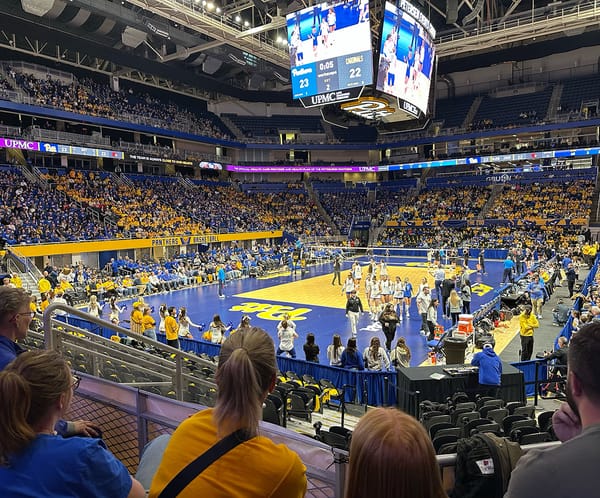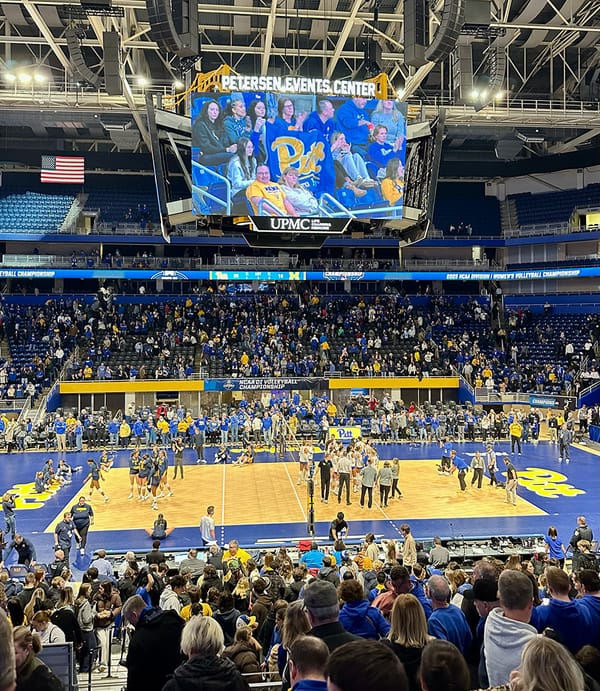Pitt's Black Sunday Shows NCAA Committee's Short-Sightedness
This is not the path that the Panthers deserved.
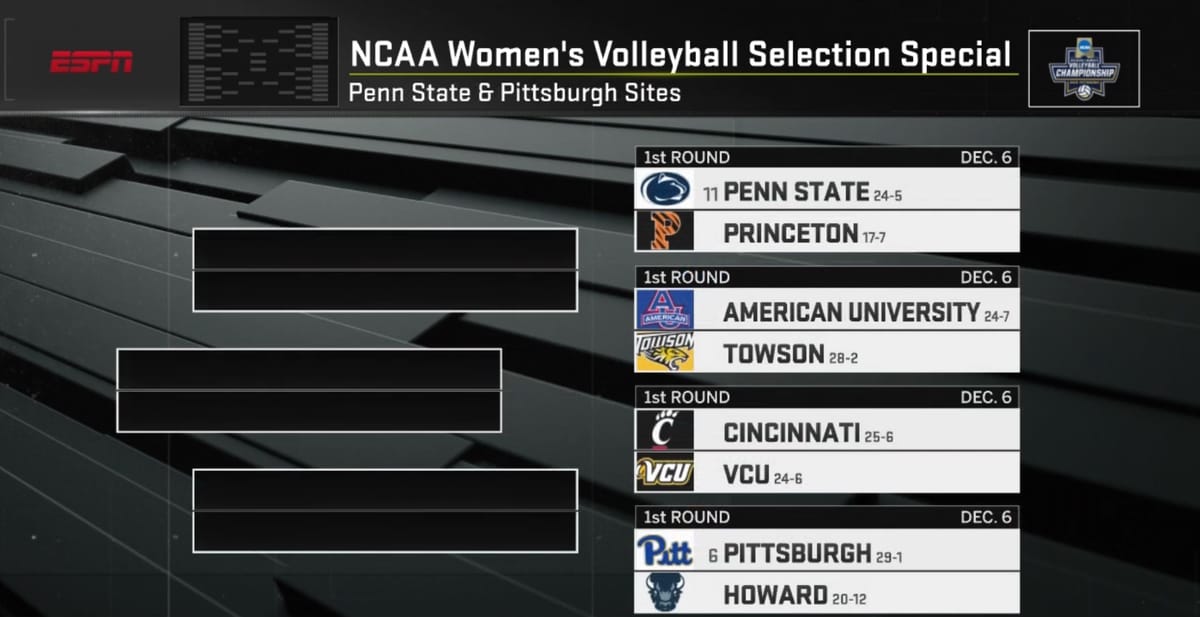
This is Day 2 of 22 for the Bandwagoner’s Guide to Pitt Volleyball, as I take you all the way through the NCAA tournament.
My name is James Santelli, washed-up sports journalist and washed-down local TV news producer. If you haven’t subscribed already, GET. ON. IT.
Thank you. Now, on with the outrage!
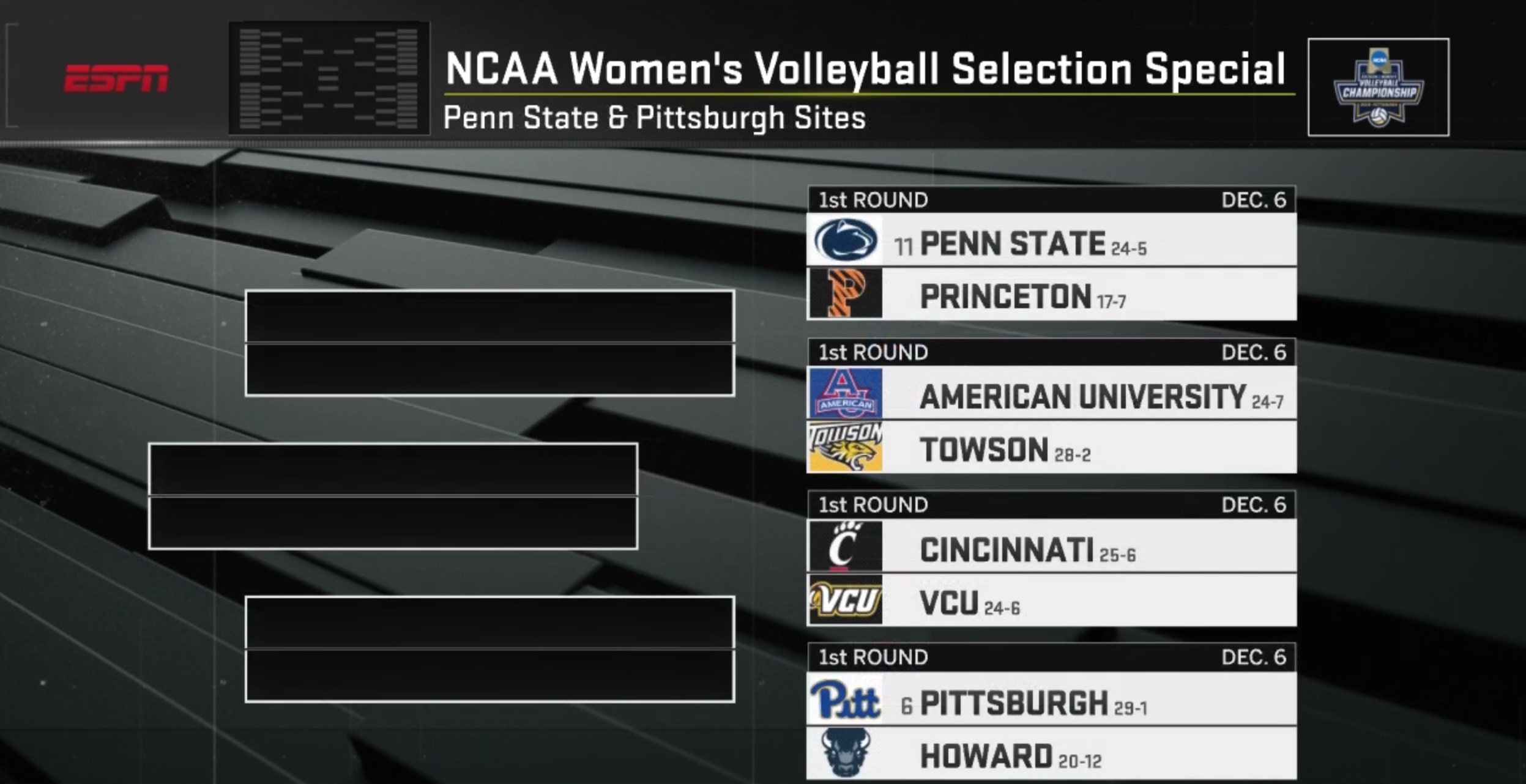
WHAT HAPPENED?
Pitt got hosed. How else can you put it?
Well I guess you could also say they got shafted, drew the short straw, and got a raw deal. But those are all just longer synonyms.
The NCAA Volleyball committee proved yesterday, by hanging a #6 overall seed on Pitt and denying them home-city advantage throughout the NCAA Tournament, that how you perform on the court matters less than tradition, conference and pedigree.
Last year, Pitt was #7 in the RPI and the committee seeded the Panthers #12. The committee chair said: "Pitt didn't have any Top 10 wins. And they only had two in the Top 25… that’s why they ended up where they did.”
So this year, Pitt upped its game. They scheduled 16 matches against teams that made the 2018 NCAA Tournament, and they went 15-1 against those teams. Going into the year, their schedule had six matches against preseason Top 25 teams. Out of conference, they went to State College and swept Penn State. They went out to Malibu, beat two 2019 tournament teams and a bubble team.
Match in and match out, Pitt proved it belonged among the nation’s best. Other head coaches and SID’s recognized it, placing Pitt as their #2 overall team in the Coaches’ Poll.
Pitt also did something that no other team did — going 29-1, outscoring the opposition in all 30 games. Pitt was the most consistent team in the nation, with the most balanced offensive attack and a defense that held opponents to the lowest hitting percentage of any big-conference team.
The message from the committee this time around, essentially: “So what? You still don’t play in the Big Ten.”
THEY’RE IN THE BIG TEN. YOU’RE NOT.
If you play in the Big Ten, yes, you get a tougher slate. It’s the toughest league in the country, and everyone knows it. Last year, half of the Elite Eight came out of the conference. The Big Ten Network properly touts its strength:
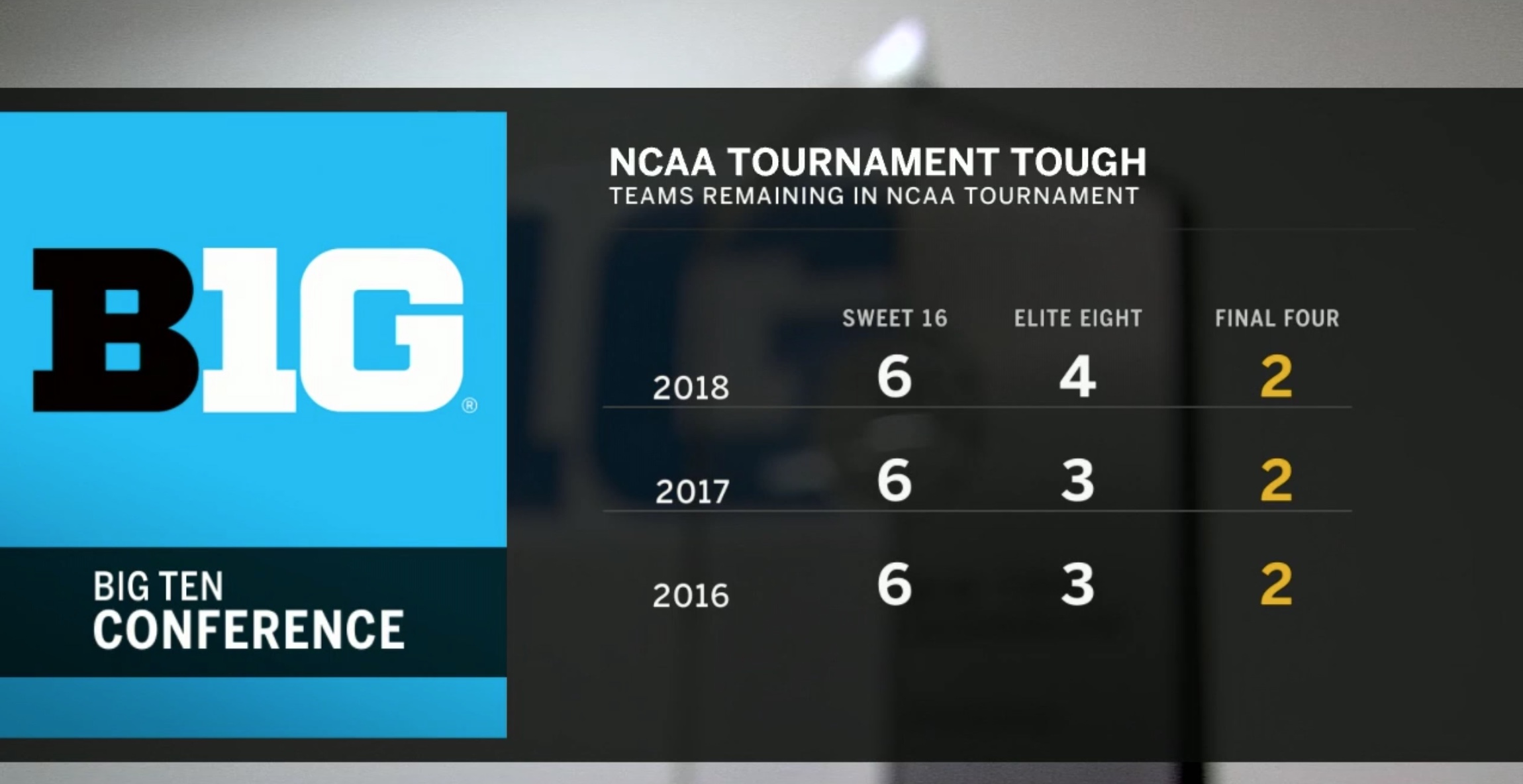
But Big Ten teams also get a shocking amount of margin for error and benefit of the doubt.
Wisconsin, the committee’s 4th and final home-court advantage team, got itself six losses worth of margin of error. It got “lost to a non-tournament Ohio State team that Pitt swept” levels of benefit of the doubt.
Nebraska, the committee's 5th-seed team, was able to take a couple nights off (Wisconsin swept the Huskers twice) and still earn a higher seed than the Pitt Panthers.
During the selection show, committee chair Michelle Durban would not give a clear answer about why they placed Wisconsin and Nebraska over Pitt.
“The committee has specific parameters that we use [record, strength of schedule, significant wins, etc.]… when we looked at those 3 schools, we felt that Wisconsin checked the most boxes, and that is how they ended up as the #4 seed.”
Translation: So what if Wisconsin lost six times? They play in the Big Ten!
Durban eventually provided more specific reasons in a longer interview with NCAA.com:
“When it came down to it, Wisconsin has four Top 10 wins, and they won strength of schedule as well as the non-conference strength of schedule when comparing them to Nebraska and Pitt.
“And then in terms of the #5, Nebraska had one win over a Top 10 team as well, and then also had a higher strength of schedule and non-conference schedule. That kind of came into play.
“Pitt did not have any Top 10 wins. And so when we were looking at total body of work, that came into play.
WHAT ON EARTH?
That is an absurd way of deciding seeds because, while Pitt played a lot of quality teams, none of them ultimately ended up in the Top 10. Using that as a point of comparison is like comparing teams based on who has more red on their jerseys.
First of all, RPI already incorporates strength of schedule and “total body of work.” And according to the final RPI, Pitt was #4. Wisconsin was #5. Nebraska was #8.
Second of all, if you want to decide a seed based on how each team fared against the strongest opponents, you need to use a metric that can reasonably compare them.
Had the committee used record vs. RPI Top 25 teams, they would have come away with an entirely different picture:
- Wisconsin: 6-5 vs. Top 25
- Nebraska: 4-4 vs. Top 25
- Pitt: 5-1 vs. Top 25
Or on a night-in, night-out basis against RPI Top 100 teams:
- Wisconsin: 13-6 vs. Top 100
- Nebraska; 14-4 vs. Top 100
- Pitt: 16-1 vs. Top 100
Only one other team went 16-1 against the Top 100 — the #1-seeded Baylor Bears.
As far as I can tell, there is nothing in the written criteria that says the committee has to use Top 10 wins. They just decided to do so.
THE ROAD AHEAD, AND WHAT COULD HAVE BEEN
It’s hard to overstate how much the committee’s bias has hurt Pitt chance’s at playing in the “final four” at PPG Paints Arena.
With a #4 seed, Pitt would have stayed at home, in line for one genuine challenge against Nebraska in the Elite Eight.
Even a #5 seed would have been easier, taking them on a relatively short flight to Madison, Wisconsin, witch a chance for the Panthers and Badgers to settle the committee’s decision on the court.
Instead, the road to the National Title will almost certainly take them 2,600 miles away to California, likely to face the two strongest schools in women’s volleyball history: Penn State (their arch rival, the team that eliminated them in the NCAAs in 2016 and 2017, and their lone loss in 2019) and Stanford (the defending National Champs featuring an embarrassment of All-Americans).
If there is any positive to come from the Selection Show, it’s that the committee has placed a chip directly on Pitt’s shoulder. The Panthers can use that. They’ll need to. Their history-making regular season meant nothing to the committee.
They’ll just have to go out and prove it again.
P.S. I used words like “almost certainly” to describe the road ahead for Pitt. There is a possibility that Pitt would host regionals, but only if Stanford loses in the first two rounds to Denver, Georgia or Cal Poly. I would not hold my breath. I need my breath in order to live.


